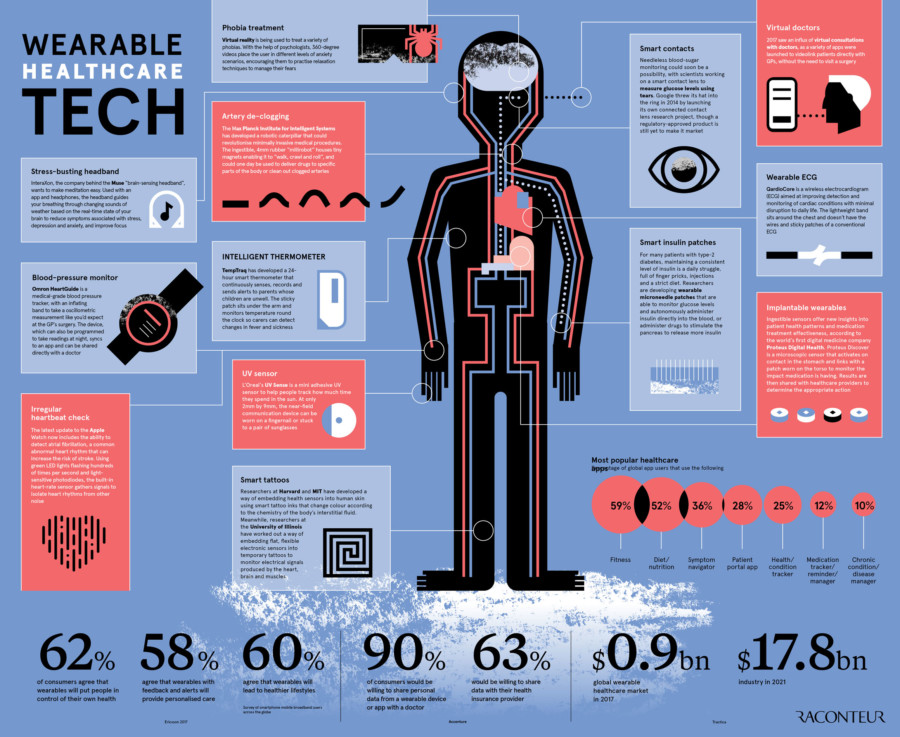
Data is pouring in from more than 100 million wearable devices worldwide that can track your steps, sleep patterns, blood pressure, heart rate, energy levels and a whole range of other measures. There’s just one problem, says Dr. Karl Poterack, director of applied clinical informatics at Mayo Clinic: “We don’t know if this data can predict or change [health] outcomes. We need to figure that out.”
Poterack gave a talk this morning that dumped a bit of ice water on outsized expectations that broad-based data collection is on the cusp of transforming medical practice. He urged the audience to keep a few points in mind before dumping more dollars, and time, into data collection:
- The device makers aren’t just giving you your own data: “If you aren’t aware of this, you should be — the vendors are collecting your data,” Poterack said. “Fitbit alone has data on over 75 trillion steps and over 3 billion nights of sleep.” That does not mean the data collection is nefarious, just that you ought to keep your eyes open.
- The vast majority of these devices are not medically controlled: That means health providers have not validated their accuracy and do not ensure they are calibrated correctly. “This is huge,” Poterack said. “Many of these devices are very robust and provide pretty accurate data … but they are not medical grade.”
- Doctors don’t yet have much use for your data: Because of that previous point — and a general lack of clinical evidence — things like step counts don’t mean all that much to physicians. “If you say, ‘I want to give you this data to help take better care of me,’ your doctor is going to say, ‘It’s great that you’re active — 8,000 steps this day, 9,000 the next … I don’t know what it means,’” Poterack said.

14 Comments
Louisa Jablonowski
I’m curious to find out what blog platform you’re utilizing? I’m having some minor security issues with my latest blog and I would like to find something more safe. Do you have any solutions?
http://abcnews.com/
Christy Pearman
Wow! This can be one particular of the most helpful blogs We’ve ever arrive across on this subject. Actually Excellent. I am also an expert in this topic so I can understand your effort.
http://abcnews.com/
Danial Calligy
Hiya, I am really glad I have found this information. Nowadays bloggers publish only about gossips and internet and this is actually frustrating. A good web site with exciting content, that is what I need. Thanks for keeping this website, I’ll be visiting it. Do you do newsletters? Can’t find it.
http://abcnews.com
Neva Bonenfant
Awesome post. I am a regular visitor of your site and appreciate you taking the time to maintain the nice site. I will be a frequent visitor for a long time.
http://abcnews.com
Paris Ollhoff
Thank you for the good writeup. It in fact was aamusement account it. Look advanced to more added agreeable from you!However, how can we communicate?
http:/suckafatonehomo.com
Google
Google
Although sites we backlink to below are considerably not associated to ours, we really feel they may be in fact really worth a go by, so have a look.
vibrating panty
vibrating panty
[…]Wonderful story, reckoned we could combine a couple of unrelated data, nonetheless definitely really worth taking a search, whoa did 1 find out about Mid East has got more problerms too […]
software download for windows 7
software download for windows 7
[…]Here are several of the internet sites we advocate for our visitors[…]
apps for pc download
apps for pc download
[…]very handful of websites that take place to be detailed beneath, from our point of view are undoubtedly very well worth checking out[…]
app download for pc
app download for pc
[…]very handful of internet sites that transpire to be in depth beneath, from our point of view are undoubtedly effectively really worth checking out[…]
free games download for pc
free games download for pc
[…]one of our visitors just lately proposed the following website[…]
pc games full version download
pc games full version download
[…]very handful of internet websites that take place to become detailed below, from our point of view are undoubtedly well worth checking out[…]
Gurgaon
Gurgaon
[…]we prefer to honor many other net sites around the internet, even when they arent linked to us, by linking to them. Beneath are some webpages worth checking out[…]
New York Personal Injury Law's Blog
I wanted to thank you for this very good read!! I certainly enjoyed every little bit of it. I have got you bookmarked to look at new stuff you postŠ Why Hire Personal Injury Lawyer accident lawyer ny blog – https://issuu.com/mia6blog/docs/sensible-products-for-new-york-lawy
http://www.nyinjurylawyerblog.com/workers-compensation